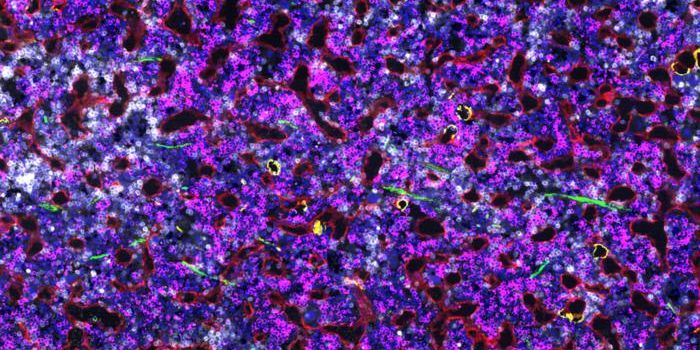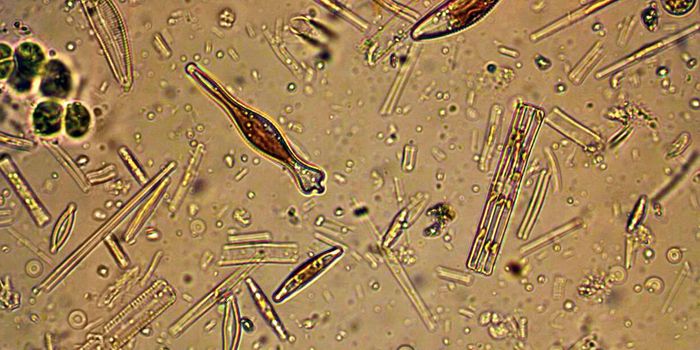Noroviruses are common; they are the primary cause of viral gastroenteritis in people and are infamous for ruining the vacations of cruise-goers. They presented a big hurdle to researchers that aim to learn more about them; it was not known how to grow them in a laboratory culture, until now.
Reporting in Science, researchers have sccuessfully grown noroviruses in cultures of human cells that normally line the intestine. This progress enables the in-depth exploration of norovirus biology, which will hopefully lead to treatments for the infection. Watch the video below from the Centers for Disease Control to learn more about noroviruses.
"People have been trying to grow norovirus in the lab for a very long time. We tried for the last 20 years. Despite all the attempts and the success of growing other viruses, it remained a mystery why noroviruses were so hard to work with," explained senior author Dr. Mary Estes, the Cullen endowed Professor of Human and Molecular Virology and Microbiology at Baylor College of Medicine.
Normally, viruses are raised in cells that support their growth, such as cancer cell or an animal model. Noroviruses cannot be grown in the typical models, in addition to being species-specific. Mouse noroviruses only grow in and infect mice, and human noroviruses are the same, solely infecting humans.
"My idea was that we had not succeeded at growing noroviruses because we didn't have the right cell type," Estes said. "We first showed that in patients with chronic norovirus infections, the virus could be detected in intestinal cells called enterocytes, but normal human enterocyte cells rapidly died when put into culture. A breakthrough came when we learned that Dr. Hans Clevers' team in the Netherlands had developed a method to make a new type of human intestinal epithelial cell culture system including enterocytes. These novel, multi-cellular human cultures, called enteroids, are made from adult intestinal stem cells from patient tissues. We anticipated that putting the virus in these non-transformed human cell cultures would let the virus grow."

After taking around a year to get the epithelial cultures ready, the investigators tested them with a rotavirus - a different human gastrointestinal virus. "Rotavirus grew well in the human intestinal epithelial cell cultures," Estes reported. "Then, we tried the human norovirus and found that some strains would grow, but others wouldn't. We suspected that still something was missing."
The researchers suspected that pancreatic enzymes could be the key to getting the norovirus to grow. Those enzymes are normally present in the human gastrointestinal tract and are critical to food digestion.
"The human body responds to food by secreting enzymes from the pancreas and bile from the liver into the small intestine. Pancreatic enzymes digest the large molecules and bile solubilizes fats," said Dr. David Y. Graham, professor of medicine and molecular virology and microbiology at Baylor and the Michael E. DeBakey Veterans Affairs Medical Center. "Viruses that cause gastroenteritis, such as rotavirus, utilize pancreatic enzymes to trigger their replication, but these enzymes had no effect on norovirus. We asked, if pancreatic enzymes were not important, was bile a key component allowing the virus to recognize where it was and replicate?"
"When we added bile to the cultures, norovirus strains that didn't grow before now grew in large numbers!" said Estes.
"This new cultivation system will finally allow us to gain an insight into how this virus causes disease," ccommented Dr. Sue Crawford, an Assistant Professor of Molecular Virology and Microbiology at Baylor and co-first author.
"We finally solved the 48 year old mystery. We were able to grow norovirus in cultures that mimic the intestinal environment, where the virus naturally grows, by adding bile to the cultures. Bile is critical for several important bacterial pathogens, but this is the first time it's been shown that bile is important for the replication of human intestinal viruses," said Estes.
Interestingly, human intestinal epithelial cultures are unique, which may explain why the virus affects some people and not others.
"These novel cultures are really remarkable as they retain properties of the different regions of the small intestine, and are physiologically active," said Estes. "Each culture is unique and reflects the genetics of the individual from whom the culture was established. This allowed us to show that some cultures, like some people, are susceptible to only one or to several human norovirus strains. These cultures will allow us to determine the mechanisms that restrict replication in some people, but not others."
"I predict this new culture system, changing certain conditions, will allow for the cultivation of other viruses or bacteria that we cannot grow at the moment. If we succeed, it will help us develop effective methods to prevent and treat infection, test vaccines, interrupt transmission, and better understand how these microbes infect people, respond to bodily defenses and evolve," concluded Estes.
Sources:
AAAS/Eurekalert! via
Baylor College of Medicine,
Science,
CDC









